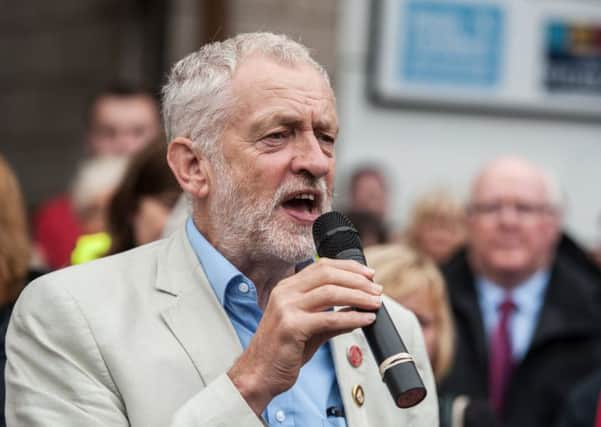Labour denies Jeremy Corbyn compared Israel to Nazis


The party issued the denial as shadow chancellor John McDonnell faced questions over his backing of the creation of a controversial anti-Zionist group in 2008.
The incidents threatened to draw Labour’s leader and his de facto deputy further into the escalating row over the handling of anti-Semitism in the party.
Advertisement
Hide AdAdvertisement
Hide AdOn Wednesday, Mr Corbyn apologised for sharing a platform with people who reportedly compared Israel to the Nazis.
Meanwhile, a member of Labour’s governing body saw support for reelection removed after he was recorded calling members of the Jewish community “Trump fanatics”.
Footage later emerged of a speech Mr Corbyn made at a rally outside Parliament in 2010 when he compared the blockade of Gaza to the sieges of Leningrad and Stalingrad in the Second World War.
He told the crowd: “I was in Gaza three months ago. I saw the mortar shells that had gone through the school buildings, the destroyed UN establishments, the burnt-out schools, the ruined homes, the destroyed lives, the imprisoned people, the psychological damage to a whole generation who’ve been imprisoned for as long as the siege of Leningrad and Stalingrad took place.”
A Labour spokesman told The Guardian: “Jeremy was not comparing the actions of Nazis and Israelis but the conditions of civilian populations in besieged cities in wartime.”
The event came six months after Mr Corbyn hosted a Holocaust Memorial Day event at which speakers are said to have likened the actions of Israel in Gaza to Hitler’s regime.
The Labour leader acknowledged that he had appeared alongside people “whose views I completely reject” and apologised for the “concerns and anxiety” that caused.
Mr McDonnell said on Thursday that he wanted the party’s approach on anti-Semitism to be resolved soon, adding: “It’s shaken us to the core.”
Advertisement
Hide AdAdvertisement
Hide AdHowever, he also faced questions over his support for the controversial International Jewish Anti-Zionist Network (IJAN), the creation of which he backed in a 2008 Commons motion.
The IJAN’s charter asks prospective members if they “feel enraged and saddened that the holocaust against Jewish people is being used to perpetrate other atrocities?”
A Labour party spokesman said Mr McDonnell “was welcoming the creation of an organisation that represented an important strand of radical Jewish political campaigning”.
“Of course he didn’t and doesn’t endorse all of the language and views expressed in their charter,” the spokesman added.
The early day motion, of which Mr McDonnell was the lead signatory, backed “the launch of the International Jewish Anti-Zionist Network and its founding Charter”.
Critics are reported to have said the charter breaches the International Holocaust Remembrance Alliance (IHRA) definition of anti-Semitism.
The Labour leadership’s reticence in adopting the IHRA definition and its examples has become a flashpoint in the row over anti-Semitism in the party.
Meanwhile, the Campaign Against Antisemitism (CAA) has referred Labour to the Equality and Human Rights Commission.
Advertisement
Hide AdAdvertisement
Hide AdThe CAA has also made a complaint to the party about comments by Mr Corbyn and his hosting of the 2010 event.
The campaign’s chairman, Gideon Falter, said: “Jeremy Corbyn has spent his political career sharing stages with anti-Semites and honouring them.
“This apology rings utterly hollow. Mr Corbyn did not merely attend the event, he chaired it, and in response to the criticism of the Jewish community in 2010 he did not apologise.”
On Wednesday, a key Jeremy Corbyn-supporting campaign group withdrew its support for a member seeking re-election to Labour’s National Executive Committee following his “deeply insensitive” comments about Jews.
Momentum added it was “inappropriate” for Peter Willsman to call some members of the Jewish community “Trump fanatics” and also suggest they were “making up” problems about anti-Semitism in the party.
The grassroots campaign group also stressed the need to acknowledge the “anger and upset” felt within the British Jewish community as it reaffirmed its commitment to “rooting out” anti-Semitism in the Labour Party and across society.
